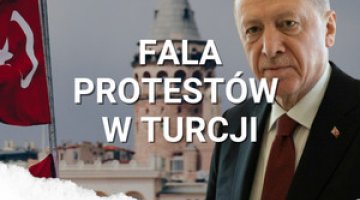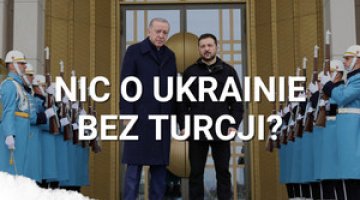Election shock in Turkey
The ruling Justice and Development Party (AKP) won the most votes in the parliamentary election held on 7 June. But for the first time in three terms it failed to secure a sufficient number of seats in order to form a government on its own. The election result has radically shifted the balance of power on the Turkish political scene. The increasing accumulation of power in the hands of President Recep Tayyip Erdoğan and the ruling party has been halted. The implementation of President Erdoğan’s priority project – the establishment of a presidential political system by way of constitutional reform – seems unrealistic at present. Furthermore, the Kurdish party HDP has substantially increased its presence on the political scene. The new balance of political power does not harbour well for the establishment of a stable government and the resultant situation appears volatile. All scenarios of how the situation may develop involve a high risk of the country’s internal destabilisation.
The results of the election
The AKP, which has been in power for 13 years, received 40.8% of the vote (258 of 550 seats). It was followed by the centre-left Republican People’s Party (CHP, 25% of the vote and 132 seats), the far-right National People’s Party (MHP, 16.4% of the vote and 80 seats) and the Kurdish left-wing Peoples’ Democratic Party (HDP, 13.1% of the vote and 80 seats). Turnout reached 86%. Despite the brutal election campaign rife with violent incidents, the majority of observers, including the Organization for Security and Co-operation in Europe (OSCE), recognised the election as compatible with democratic principles.
The most important change on the political scene is the fact that the AKP has lost its majority in parliament. This was mainly caused by a fourth party (HDP) passing the high 10% electoral threshold which automatically took dozens of seats away from the AKP. The lower support for the ruling party (10 percentage points less than in 2011) can be mainly explained by the loss of a part of Kurdish voters who were disappointed with the government’s stalling on the Turkish-Kurdish peace process and Ankara’s lack of support for the Kurds fighting against Islamic State in Syria and Iraq (ISIS). Other important factors included the worsening economic situation in the country (a slower rise in GDP, increased indebtedness among Turkish citizens, weaker trade, a sharp fall in the value of the lira), and a widespread disapproval of the creeping authoritarianism and the plans to establish a presidential system. Additionally, some voters became discouraged by the excessively aggressive brandishing of religious slogans and the use of them to stigmatise political rivals in the election campaign.
The new factor in the equation is the fact that the Kurdish HDP has entered parliament after running as a national party for the first time as opposed to putting independent candidates forward. This has significantly increased the presence of the representatives of Kurdish interests (and to a lesser extent of left-wing postulates) on the national scene. The HDP owes its success above all to winning over Kurdish voters who used to vote for the AKP. In the opinion of many Kurdish voters, the HDP’s key role in the peace process has reinforced the party’s reliability as an important player on the national scene. The charisma and leadership skills of the HDP leader, Selahattin Demirtaş have also played a significant role in it.
Who will rule the country?
At this stage it cannot be determined what the make-up of Turkey’s government will be or whether it will even be formed within the 45 days granted by the constitution (should it fail to meet this deadline, the president may call a new election). Each of the likely scenarios will mean the decomposition of the political scene, the risk of exacerbating tensions in society and threats to the present establishment.
It is most likely that President Erdoğan will entrust Ahmet Davutoğlu, the current prime minister and the AKP’s leader, with the task of forming a new government. So far the AKP has not presented an action plan for the new situation, but the statements the party’s leading politicians have made reveal that it will be seeking to form a coalition. This task is difficult due to the extreme lack of trust across party lines and the fundamental differences in their programmes. The CHP and HDP have ruled out entering into a coalition with the AKP. As for the MHP, whose worldview is the closest to the AKP’s, the party is firmly demanding that corruption scandals involving the ruling camp’s leading politicians (including Erdoğan) be investigated and that the Turkish-Kurdish peace process be abandoned. The party also fiercely opposes the establishment of the presidential political system. Hence, any coalition, regardless of its composition, is likely to be rather shaky, fragile and prone to resistance from society (e.g. from Kurds or nationalists). The establishment of a minority government with informal support from another party would also be an interim solution, whereas a snap election would involve the risk of losing further seats.
Forming a coalition of all the opposition parties and in particular co-operation between the nationalist MHP and the Kurdish HDP seems rather unlikely. The current opposition parties will likely seek to prolong the present situation to expose the AKP’s impotence and to take votes away from it should a snap election be called, or in order to strengthen their negotiating position in coalition negotiations.
A challenge for the establishment
The election result signifies the crisis of the AKP and President Erdoğan’s domination on the domestic political scene. The angry, confrontational speech which Prime Minister Davutoğlu made on the night of the election and his announcement of a continued fight against Turkey’s external and internal enemies are in contrast with later toned down statements made by the president and many AKP politicians. This proves that the election results came as quite a surprise for the ruling party and that their strategy to defend power is still in the planning stages.
There is no doubt that the failure in the election has dealt a serious blow to Erdoğan’s position since he drew much of his influence from the prospect of establishing a presidential system in Turkey. At present this scenario is unrealistic. Erdoğan’s influence will rely on limited formal prerogatives, his own personal charisma and social support. And this may not be sufficient in order to maintain the level of control he has had over the AKP. Even more so given that the party’s and the president’s objectives are diverging: while Erdoğan’s priority is to press for a new constitution and to maintain a one-party political system, the AKP feels its most important goal is to establish a stable government, and efforts to reform the constitution do not help on this.
The less-than-expected election result has also challenged the leadership of Prime Minister Davutoğlu who did not succeed in mobilising social support on a scale comparable to Erdoğan’s. It cannot therefore be ruled out that the crisis of the AKP’s domination will trigger a reshuffle within the party. It remains an open question what plans dozens of AKP politicians, including the leading and the most influential ones, will have as regulations within the party have precluded them from standing for parliamentary election for a fourth consecutive time. Their marginalisation in the party is an additional factor which increases the potential for cracks within the AKP’s establishment.
The outlook
It seems unlikely that a new stable government will be formed over the next few weeks. If it does happen, the new government will probably be vulnerable, prone to strong internal frictions and social pressure and will not see out the end of its term.
In the upcoming weeks, the main challenge for the AKP will to be to retain the largest possible scope of control over the state. However, none of the typical ways of organising power on the political scene (forming a coalition or a minority government, holding a snap election) guarantees the AKP that it will retain the extent of power it has so far enjoyed. The continuation of the policies underpinned by the AKP’s conservative-super-power ideology will also be rather hamstrung.
The key question remains whether the AKP will accept the poor election result and decide to relinquish a part of its power in accordance with democratic principles and the constitution. This scenario can not be taken for granted since in recent years AKP and Erdoğan often subordinated the principles of democracy to the needs of the political struggle (including the use of law enforcement agencies to combat the opposition, the subordination of the legal system to the executive, taking control of the media). Nor should it be ruled out that the tactic of stoking social tensions in order to expand and consolidate the will not be employed, since similar tactics have been used before. In this context President Erdoğan’s decisions will be particularly important. His ambitions of accumulating all the power in his own hands and the conviction that he is accomplishing a historic mission may not allow him to come to terms with losing a part of his influence.
Each scenario of how the situation will pan out involves the risk of social tensions escalating to a scale comparable to the mass anti-government protests in Istanbul (and then across the country) in summer 2013. Increased hopes among a vast section of society that the end of the AKP’s domination is near may make this more likely. The ambitions of the Kurds have also been reinforced and the growth of the MHP’s electorate by two million voters may indicate that there has been an increase in nationalistic sympathies. Satisfying all these aspirations at once seems impossible, particularly with the AKP’s traditionally confrontational attitude.




